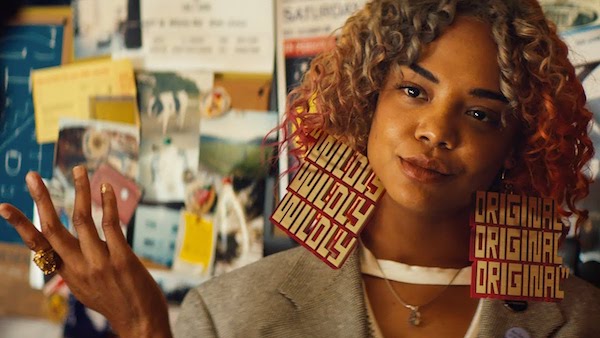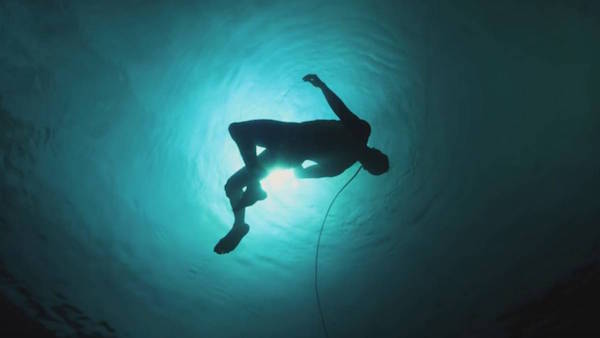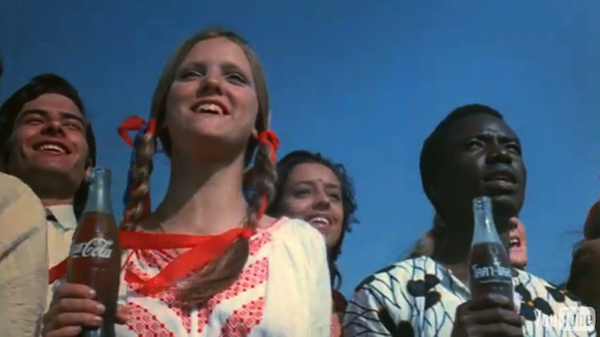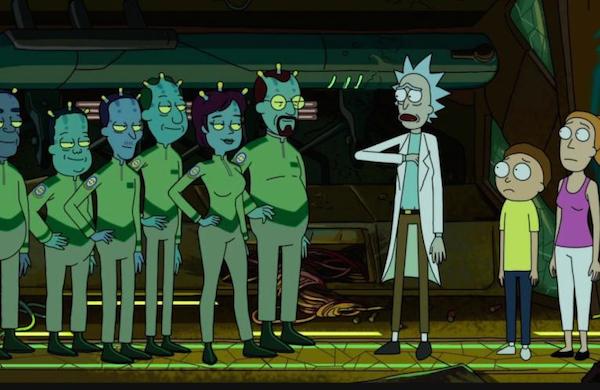What are your #2018top5 picks for movies, TV, books, music, or games?

Every site writes a too-long preamble to their year-end top-whatever lists, so I won’t. But I will say that I particularly like constricting lists to top 5 because a) they fit well on Twitter, but also b) for the sake of conversation. Whittling your list to 5 makes it hurt a little bit. Which it should! Especially when we talk about what really, truly impacted you, personally, and is gonna stick with you long after the year ends.
#2018TOP5 MOVIES
1 – SORRY TO BOTHER YOU – Wildly original, dense with ideas, perfectly performed, and hilariously weird, but never loses its anti-capitalist thread (even at the point everyone seems to think it does, and I will fight on this).
2 – A FUTILE AND STUPID GESTURE – David Wain directs an extraordinary cast, led by an outstanding Will Forte, in a funny, moving origin story to the particular sense of absurd humor that has shaped my entire life.
3 – WIDOWS – An artful, thoughtful, politically aware (but still badass!) take on the heist genre that deserves to live alongside Heat and other classics, but with the visual care and performances of a Terence Malick film.
4 – BLACK PANTHER – A ripping Marvel blockbuster that still takes on ideas as big as colonialism vs revolution, and where every supporting character is as memorable as the lead.
5 – ANNIHILATION – Wonder and beauty mix with dread and horror to create an unsettling and surprising feast of unforgettable images and philosophical quandaries to chew on long after the film ends.
NEARLY MADE IT – Eighth Grade, The Favorite, Into the Spider-verse, The Death of Stalin
DEFIANTLY ABSENT – Roma
#2018top5 TV SHOWS
1 – THE GOOD PLACE – Even in its not-best season, a deeply kind show this joke-dense, intelligently written, and in which every character is so lovable and expertly performed, is 100% still the best thing on TV.
2 – HIGH MAINTENANCE – No other series shows such a deep empathy for such a wide range of characters just trying to get through a life that can be lonely and sad but never without moments of beauty and joy.
3 – WILD WILD COUNTRY – This (almost unbelievable?) cult documentary confronts viewers with its conflicting ideologies, forcing us to examine our own beliefs, whose side we’re on, and why, like nothing I’ve ever seen.
4 – AMERICAN VANDAL – How this show pulls off a cutting true-crime satire AND a genuinely heartfelt story about teenage life, while remaining an actually-compelling mystery story, continued to blow my mind in year 2.
5 – ALTERED CARBON – The premise of portable identity unlocks so much, but the future-noir setting, martial arts action and gorgeous production sealed the deal. Thoroughly enjoyable and constantly thought-provoking.
NEARLY MADE IT – Killing Eve, Succession, Atlanta, Legion, Better Call Saul, Big Mouth (whoa I watch too much TV)
DEFIANTLY ABSENT – Sharp Objects, The Americans, Ken Burns’ The Vietnam War (I know that wasn’t this year but man I want those 20 hours back)
#2018top5 BOOKS
*note: I do not read fast enough to make book lists by year of release, so this, like most normal people’s I imagine, will be books READ this year instead.
1 – EXIT WEST by Moshin Hamid – Profound yet lighthearted, a pleasure to read while tackling the toughest challenges of refugee living, this magical realist world and the love story at its heart moved me deeply. A must read.
2 – THE POWER by Naomi Alderman – In a world where men have to fear women for once (they can electrocute through touch), everything changes, and this story digs deep into the many myriad effects that has. Loved it.
3 – MS MARVEL VOL 1 by G Willow Wilson – I haven’t fallen so hard so quickly for a main character in ages. Quirky, nerdy, teenaged Kamala Khan dealing with newfound powers in this punkish, witty comic is a delight.
4 – ALTHOUGH OF COURSE YOU END UP BECOMING YOURSELF by David Lipsky – Spending time with a genius offers you the privilege of a peak into his incredible mind, but also forces you to face your own insecurities as someone who will never be one. DFW was a treasure.
5 – SEA OF RUST by C Robert Cargill – This pulpy Mad Max-but-with-robots future story also conceals all kinds of questions about the conflicts that arise when AI start governing themselves. (I would love to see an anime adaptation.)
NEARLY MADE IT – IQ by Joe Ide, LESS by Andrew Sean Greer, THE VISION by Tom King
DEFIANTLY ABSENT – THE YEAR OF MAGICAL THINKING by Joan Didion, MANHATTAN BEACH by Jennifer Egan, ANNIHILATION by Jeff VanderMeer
#2018top5 GAMES
*similar note applies because damn are almost all games too long, meaning one can only play so many the year they’re released.
1 – RETURN OF THE OBRA DINN – Unique stippled art and elegant design made this game beautiful. Clever plotting and an ingenius mystery-solving mechanic made it unforgettable. A tight, intriguing, somber masterpiece.
2 – INTO THE BREACH – Removing the element of chance makes each tactical mech battle a perfectly intellectual puzzle-solving exercise that’s so satisfying to play and eventually conquer that it’s impossible to put down.
3 – MARVEL’S SPIDER-MAN – The most gorgeous game of the year. Not just for its city, its fluid web-swinging animations, and its thrilling action set-pieces, but for its earnest hero and sympathetic villains. One of the best Spidey stories ever put to screen.
4 – FEAR OF LOATHING – Game writing tending to the eye-rolling, this stick-drawn western RPG succeeds on its laugh-out-loud (honestly! the jokes are that good!) writing but gets extra points for balancing depth with fun.
5 – WHAT REMAINS OF EDITH FINCH – More games should be comfortable with the artistic, the abstract, and the emotional in their storytelling. This beautiful short story of a game tries weird, crazy things and opens new doors to what games could look like.
NEARLY MADE IT – God of War, Goragoa, PlayerUnknown’s Battlegrounds
DEFIANTLY ABSENT – Red Dead Redemption 2
#2018top5 ALBUMS
1 – HISTORIAN by Lucy Dacus – The mix of introspective lyrics, beautiful voice, and loud-quiet-loud guitars are what I look for in most music, and this album stayed in my rotation all year long for nailing it so well.
2 – HOPE DOWNS by Rolling Blackouts, Coastal Fever – When most straight-up indie rock is either seemingly absent or sad bastard dad stuff, a power-pop record with this kind of energetic bounce is so, so welcome.
3 – HEAD OVER HEELS by Chromeo – These dudes are unapologetically horny and I love it. Every song is about wanting to make sweet love in a charmingly silly, totally catchy, perfectly pop way.
4 – FUTURE ME HATES ME by The Beths – Girls and guitar riffs was a huge theme of most of the music I loved this year, and this one just happened to do that wonderful mixture the best out of many. Punky good fun.
5 – LP5000 by Restorations – The best songs off this short album were the ones that got stuck in my head the most this year. A throwback to full-throated, unapologetic feeling in simple, soaring indie rock shout-alongs.
NEARLY MADE IT – ORDINARY CORRUPT HUMAN LOVE by Deafheaven, DANCE ON THE BLACKTOP by Nothing, SOME RAP SONGS by Earl Sweatshirt, EVERYTHING MATTERS BUT NO ONE IS LISTENING (QUIET SLANG) by Beach Slang (the best band working)
DEFIANTLY ABSENT – I’ll forever love both of them, but the new albums by CHVRCHES and DECEMBERISTS didn’t reach their previous heights, for me.
So, what were your #2018top5 picks?



